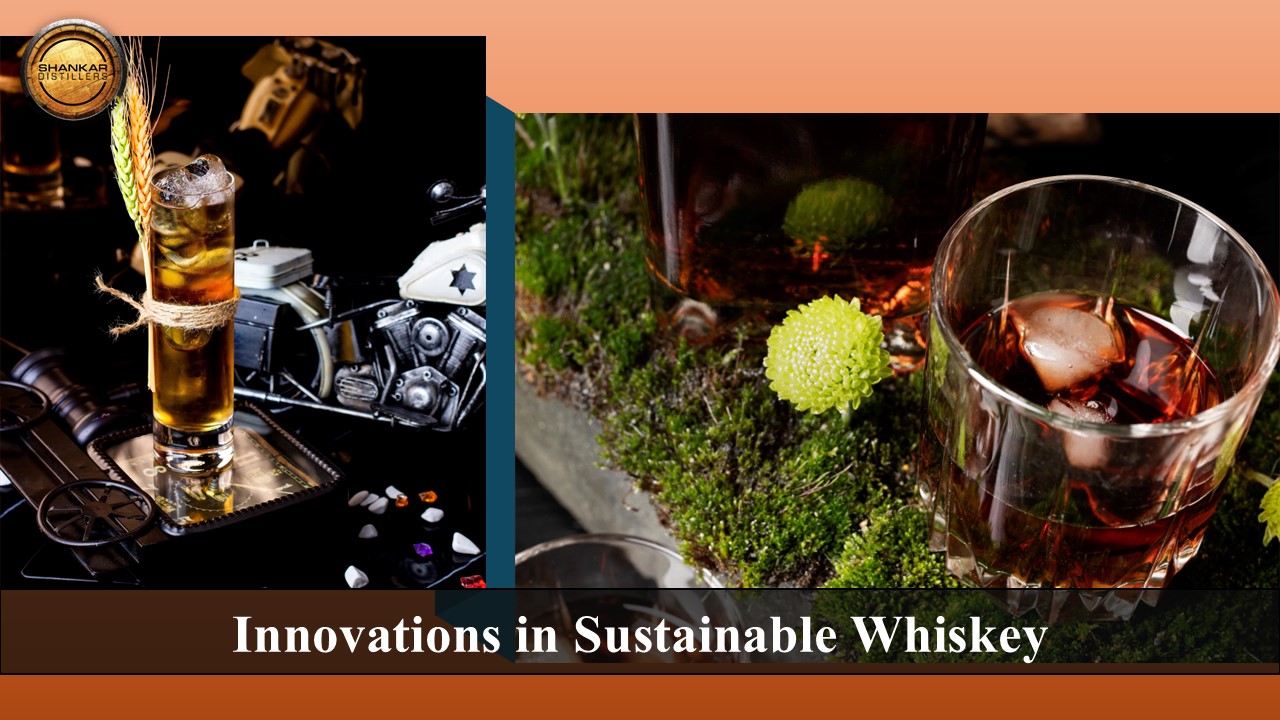The Future of Sustainable Whiskey Production - PowerPoint PPT Presentation
Title:
The Future of Sustainable Whiskey Production
Description:
Sustainability in whiskey production is no longer optional but essential. Distilleries producing straight bourbon and rye are turning to renewable energy, efficient water recycling, and regenerative agriculture. Waste-to-energy solutions and sustainable packaging materials illustrate a holistic approach to eco-friendly practices. Shankar Distillers – Premium Whiskey Company in USA stands out for its commitment to these methods, proving that traditional whiskey craftsmanship can meet modern sustainability demands. – PowerPoint PPT presentation
Number of Views:0
Title: The Future of Sustainable Whiskey Production
1
Innovations in Sustainable Whiskey
2
As consumer awareness of environmental issues
grows, distilleries are increasingly embracing
sustainable practices to meet the demand for
eco-friendly products. Whiskey distillers in the
USA, renowned for their rich heritage of straight
bourbon whiskey and straight rye whiskey, are now
leading the charge in adopting green initiatives
that align with responsible stewardship of
resources. Whether you search for a "whiskey
distillery near me" or explore renowned
distilleries nationwide, the shift towards
sustainability is evident.
3
Sustainable Sourcing of Ingredients One of the
most crucial steps distilleries are taking
involves sustainable sourcing of raw materials.
Premium straight bourbon whiskey and straight rye
whiskey require high-quality grains, typically
corn, rye, barley, and wheat. To ensure long-term
environmental impact is minimized, many
distilleries are now working directly with local
farmers who employ regenerative agricultural
practices. This method focuses on crop rotation,
no-till farming, and reduced chemical use to
maintain soil health and foster biodiversity.
Such practices not only reduce the carbon
footprint of sourcing ingredients but also
strengthen local agricultural communities. Water
Conservation and Management Water plays a vital
role in whiskey production, from the mash process
to dilution and cleaning. To promote water
sustainability, distilleries are investing in
closed-loop water systems that recycle and reuse
water efficiently, minimizing waste. Advanced
treatment plants and rainwater harvesting
techniques are also becoming more common,
allowing for significant reductions in water
consumption. By incorporating these innovative
systems, distilleries can continue producing
premium spirits like straight bourbon whiskey and
straight rye whiskey while protecting valuable
water resources.
4
Energy Efficiency in Production The distillation
process is energy-intensive, historically relying
on fossil fuels to achieve the necessary
temperatures. However, many distilleries,
including Shankar Distillers Premium Whiskey
Company in USA, are switching to renewable energy
sources such as solar, wind, and biomass.
Integrating solar panels and wind turbines helps
offset the carbon emissions associated with
whiskey production. Additionally,
energy-efficient equipment, like heat exchangers
and advanced boilers, is being installed to
optimize energy use, ensuring that production
lines remain both eco-friendly and economically
viable. Waste Reduction and Byproduct
Utilization Another area where distilleries are
making strides is in waste management. The
byproducts of whiskey productionspent grains,
yeast, and other organic materialsare now being
repurposed to reduce environmental impact. Spent
grains are often given to local farmers as
livestock feed or used as a base for sustainable
biofuels. Some innovative distilleries have even
incorporated waste-to-energy technology,
converting organic waste into biogas that fuels
part of the production process. This circular
economy model exemplifies how distilleries can
turn potential waste into valuable resources.
5
Packaging and Carbon Footprint Packaging also
plays a significant role in sustainability
efforts. Many distilleries are rethinking
traditional packaging by opting for lighter,
recycled glass and biodegradable materials.
Eco-friendly bottling not only reduces shipping
costs due to decreased weight but also cuts down
on emissions associated with transportation.
Additionally, some producers are using
carbon-neutral shipping methods to further
minimize their environmental footprint. Community
and Consumer Engagement Sustainability in the
whiskey industry isn't just about internal
processes it's also about fostering a culture
that encourages responsible consumption and
environmental mindfulness. Distilleries are
launching educational programs, tours, and
tastings that highlight their sustainability
initiatives, encouraging consumers to value
eco-friendly products. By sharing stories and
engaging with local communities, brands build
strong connections that emphasize the importance
of sustainability in premium whiskey production.
6
- The Path Forward
- The future of whiskey production lies in
balancing heritage with innovation. The
commitment shown by industry leaders to embrace
sustainable practices is a testament to their
forward-thinking approach. As the demand for
eco-friendly options continues to grow, whiskey
distillers in the USA, like Shankar Distillers
Premium Whiskey Company in USA, are setting the
standard for how premium spirits can be produced
responsibly. By focusing on sustainable sourcing,
energy efficiency, waste reduction, and community
engagement, the industry can craft exceptional
straight bourbon and straight rye whiskeys while
protecting the environment for future
generations. - Useful Links
- Bourbon cocktails
- Rye recipes
- Resources
7
Thank You
Follow us on































